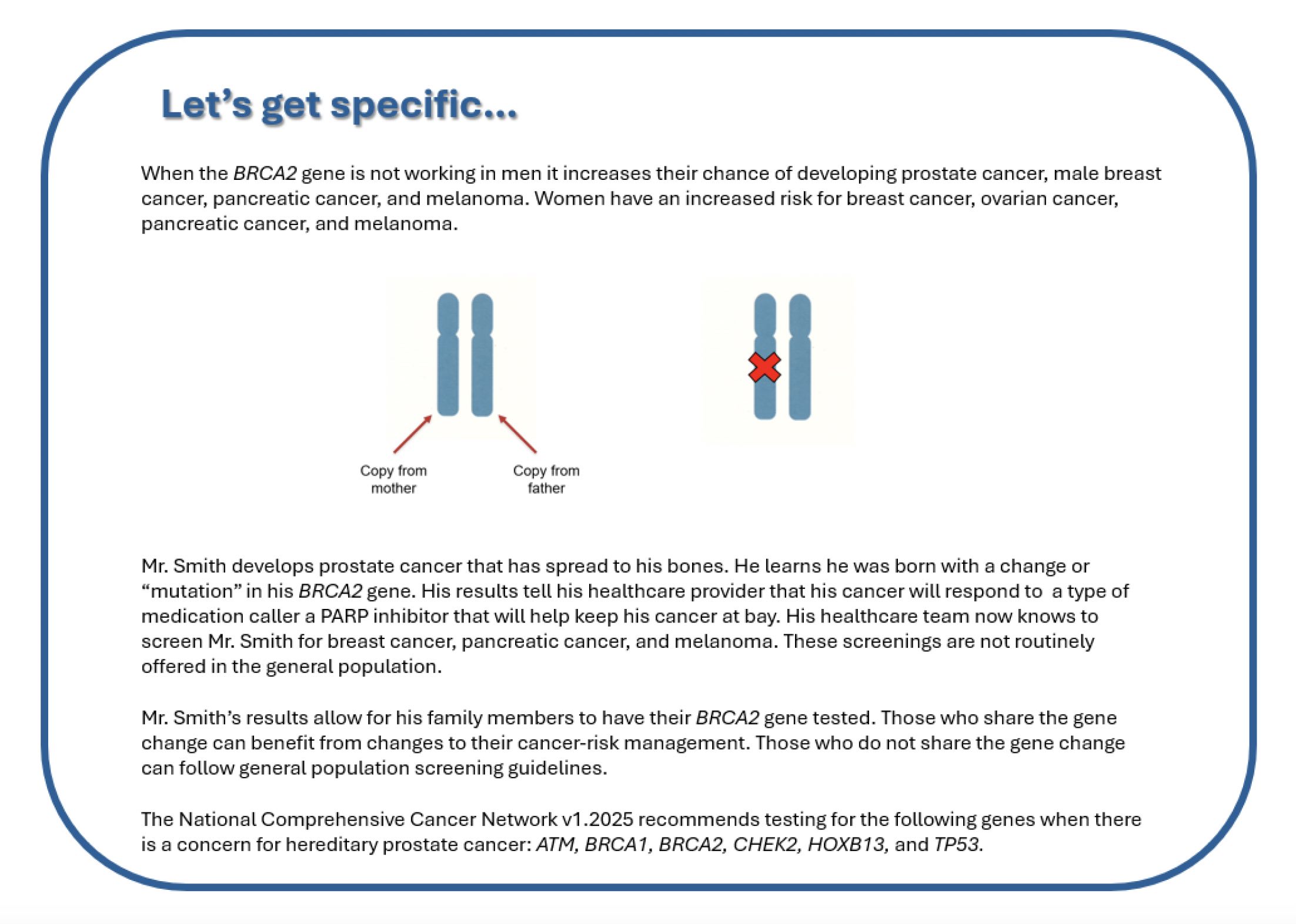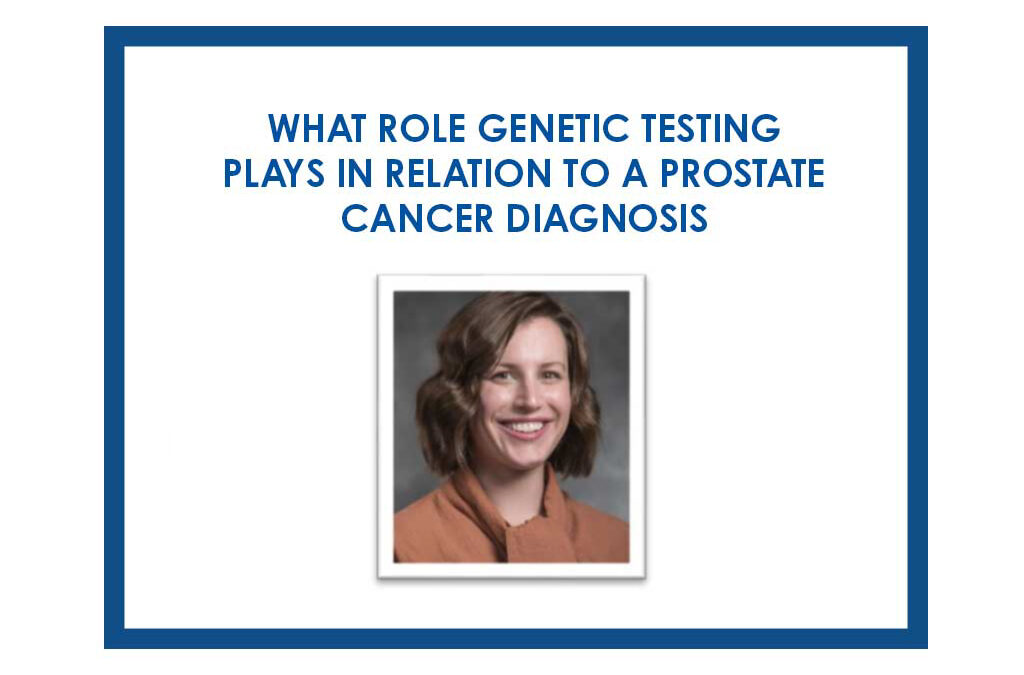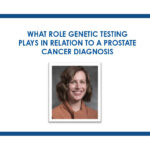Hi, I’m Maggie Powell Frazier, MS, CGC (certified genetic counselor) at the Duke Cancer Institute. A diagnosis of prostate cancer means many things. One thing it means is facing a lot of new information that you must use to make tough decisions. Genetic testing is only one part of your cancer care, but sometimes it can be a confusing part. The information below breaks down how genetic testing fits into prostate cancer care.
What is a Genetic Test?
Genes are sections of your DNA. Genes carry traits from our parents. Genetic testing uses a sample of your blood or saliva to look for changes in your genes that increase risk for cancer. You may hear these gene changes called “mutations.”

What is Hereditary Prostate Cancer?
Hereditary prostate cancer is prostate cancer caused by a gene change that is passed down through a family.
Approximately 1 in 10 prostate cancers are hereditary.
Families that are impacted by hereditary prostate cancer tend to have more people with cancer than what is typical. The prostate cancers tend to develop at younger ages and be more aggressive.

Why should I have testing?
- A genetic test may help your doctor choose the cancer medications that work best for you.
- A genetic test may tell you about your risk for developing a new cancer in a different part of your body. The more we understand your personal cancer-risk, the better we can personalize your cancer screening.
- Your genetic test results allow family members to better understand their cancer risk. Those at higher than average risk can take steps to improve chances of early detection, like starting prostate cancer screening earlier in life.
Who should have the genetic test?
- Whenever possible, it is best to test the person with cancer in the family first
- Genetic test results may impact cancer treatment
- Genetic test results may inform risk for developing new cancers in other parts of the body
- Genetic test results can tell us if family members without cancer need genetic testing. If no gene changes are found in the person with cancer, their family members may not need genetic testing.

How much will testing cost?
- Many times insurance will cover the cost of genetic testing if there is suspicion for hereditary prostate cancer.
- Many labs have policies that protect patients from high-costs associated with genetic testing.
What is a genetic counselor?
A genetic counselor is a healthcare professional with a graduate degree in medical genetics. They are trained to perform cancer risk assessments, help with genetic test selection, facilitation and interpretation. A genetic counselor helps you understand what hereditary cancer risk means for you and your family.
Want to learn more?
- Ask your cancer care team about a referral to a genetic counselor. Or, go to nsgc.org and select the “Find a Genetic Counselor” ribbon on the front page. Follow the prompts to connect to a genetic counselor near you!
- Watch the video below to learn more!





